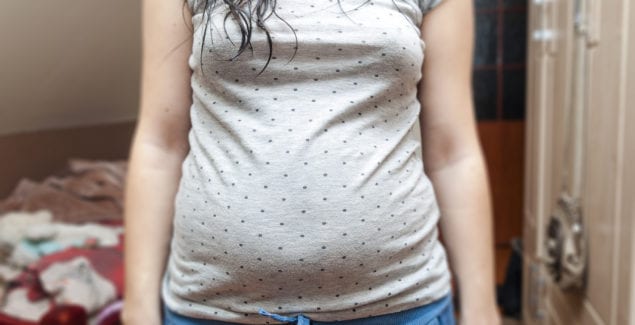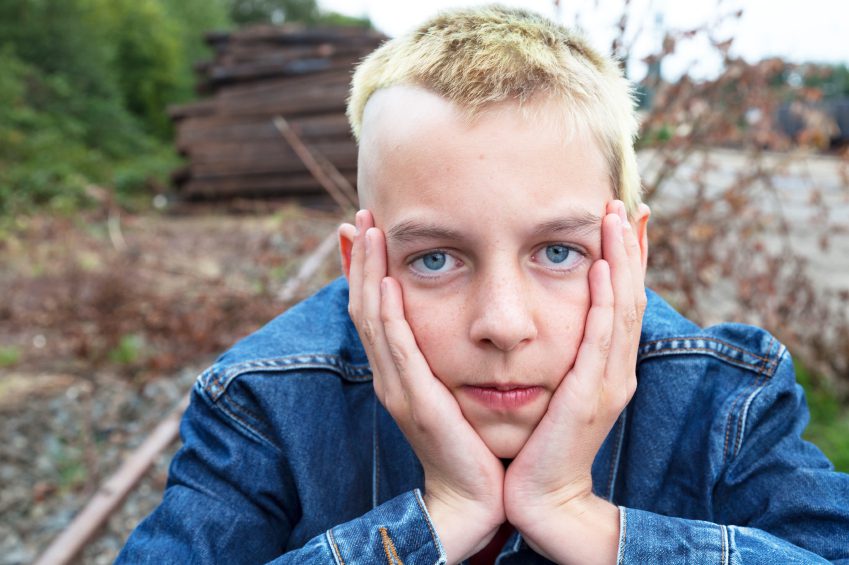Mental Health Needs Of Teen Moms

Posted in: Hot Topics, Infants & Toddlers, You & Your Family
Topics: Mental Illness + Psychiatric Disorders
We know that adolescents get depression.
We also know that adolescents are a lot more likely to get depressed than pre-adolescents.
And, we know that pregnancy is associated with a higher risk for depression both during the pregnancy itself, and at least three months following. In fact, “perinatal depression” refers to exactly this period. The American College of Obstetricians and Gynecologists (ACOG) recommends screening for depression before and after pregnancy, and there is a great deal of evidence suggesting that this screening is literally life-saving.
It seems, therefore, that we have been somewhat remiss at The Clay Center in not addressing this important topic. If depression is more common among adolescents and during pregnancy, then we ought to write about teen pregnancy and depression. Thus, this will be our first, but certainly not our last, blog post on this vital issue.
Let’s do the epidemiology first.
According to the Centers for Disease Control and Prevention (CDC), the rates of teen pregnancy are falling. In the United States, 249,078 babies were born to women aged 15 to 19 years in 2014. This represents a historic low for births among U.S. teens, and a drop of 9% from 2013.
But, what happens when teens do get pregnant? All sorts of data show that pregnant teens, especially when they don’t have the support of their family, don’t always receive adequate prenatal care and are more likely not to comply fully with medical recommendations—many of which are uniquely designed to protect against depression or causes of depression. Folic acid, for example, reduces the risk of certain types of birth defects. Standard prenatal care involves folic acid, but if teens don’t follow or are not offered this recommendation, the risk of birth defects is increased. A baby with a birth defect can make the stress of what is potentially an already difficult period much worse, therein serving as a potent catalyst for development of depression.
Younger mothers are also more likely to have pregnancy complications. Pregnancy-induced hypertension, as well as pre-term birth and low-birth-weight babies, all occur more frequently among pregnant teens. Moreover, children born to teen mothers are more likely to experience developmental delays and behavioral problems. As you can imagine, all of these stressors predispose young mothers to depression.
There are also important social and cultural issues to consider, as the risks of teen pregnancy extend far beyond the delivery. Teen pregnancies are more common among women of color, and those with a lower education level and socioeconomic status. Unplanned pregnancies reduce women’s access to education and career opportunities, and may thus contribute to educational and professional underachievement and poorer economic circumstances.
And, even after the postpartum period—officially defined as the three months after giving birth—teen parents are at increased risk for significant mental health problems. Our current research indicates that adolescent mothers experience higher rates of depression during pregnancy and the postpartum period when compared to older mothers and their non-pregnant peers. In fact, rates of depression in pregnant and postpartum teens are estimated at 16% to 44%. In contrast, the prevalence of depression in older mothers is 10% to 15%.
If you put this all together, you can see that pregnant teens represent a highly vulnerable population. Multiple psychosocial risk factors, including poverty, lower education level, inadequate social supports, and exposure to physical and emotional abuse all conspire to make depression much more likely. Add to this the additional biological burdens that can make pregnant adolescents even more susceptible to depression, and you have a perfect storm of risk.
So, what do we do?
Treatment is challenging. Pregnant adolescents sometimes poorly adhere to mental health services, though the reasons for this finding are not entirely clear. It’s therefore imperative that any approach be developmentally informed, as well as psychosocially and biologically savvy. Pregnant teens and teen mothers are not yet adults, but they’re not children either. In many ways, our systems of care are not designed for this unique population.
We need innovative services that link schools, clinicians, obstetricians, and primary care to address these issues head-on—and, in a future post, we plan to outline some of these unique approaches. For now, please chime in the discussion below, and let us know what questions or comments you might have regarding this special challenge.
This blog post is done in collaboration with the Massachusetts General Hospital Center for Women’s Mental Health, which is dedicated to providing state-of-the-art evaluation and ongoing care for women who suffer from a spectrum of psychiatric disorders. More information can be found at https://womensmentalhealth.org/.

 Share
Share Tweet
Tweet






